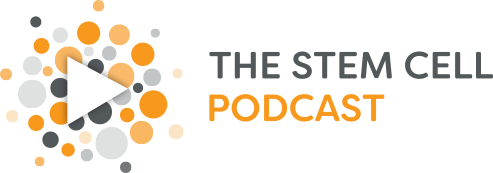 Knoepfler Lab at UC Davis School of Medicine conducts research on cancer and stem cells with emphasis on chromatin and epigenetics. The lab receives funding from organizations that include the National Institutes of Health and California Institute for Regenerative Medicine. Its namesake, Dr. Paul Knoepfler, was named in 2013 among the top 50 most influential people in the field of stem cell research and technology.
Knoepfler Lab at UC Davis School of Medicine conducts research on cancer and stem cells with emphasis on chromatin and epigenetics. The lab receives funding from organizations that include the National Institutes of Health and California Institute for Regenerative Medicine. Its namesake, Dr. Paul Knoepfler, was named in 2013 among the top 50 most influential people in the field of stem cell research and technology.
Focus on Chromatin and Epigenetics
Chromatin is a complex of large molecules found in cells. On top of providing overall DNA protection, chromatin has other primary functions. One, it is responsible for packaging DNA into smaller components that can fit in a cell. Two, it permits cellular division or mitosis by reinforcing DNA molecules. And last, it controls replication of DNA molecules and gene expression.
All in all, chromatin is important for maintaining the integrity of the cells throughout their lifetime. Since application of stem cell technology requires that the stem cell pool meets ideal internal conditions, it’s just natural that the breakdown of chromatin regulators must be prevented, if not minimized at the very least. With that in mind, research and understanding of chromatin mechanisms is a crucial aspect in stem cell technology.
Meanwhile, Knoepfler researchers are also highly interested in epigenetics or the study of cellular reactions and the factors that affect DNA, particularly factors that influence how cells read genetic variations. Stem cells, epigenetics, and cancer are all closely associated. Genes are coded in the genome, but nothing actually happens without the epigenome which is made up mainly of histone variations and DNA methylation. By putting the spotlight on epigenetics, scientists are able to better understand how the epigenetic state (which genes are on or off) of each cell behaves or misbehaves, as in the case of cancer.
Latest Findings
Knoepfler Lab is working to advance stem cell science to fight cancer. It has two main goals. One, it aims to develop new and effective therapies using safe regenerative medicine based on stem cell technology. And two, it strives to accelerate the availability of cancer-fighting therapies, especially for brain tumors and other nerve cell cancers in children. Here’s what keeps the lab busy:
1. Researchers at Knoepfler Lab has a long-established fascination with Myc, a gene regulator responsible for binding specific DNA sequences. Problems with Myc have been linked to cancer in humans. Also, Myc proteins enable the normal functioning of the stem cell. But apparently, this gene regulator does not work alone. The lab is now closely studying a key Myc co-factor called Miz-1.
2. A type of molecule named histone variant H3.3 is the subject of a relatively new chapter in the study of chromatin and epigenetics. Unlike normal histones, histone variants do not follow the same rules. Variant H3.3, for example, can become a chromatin component any time and thus it is more dynamic and vital in cellular processes involving cancer and stem cells. The lab is researching on the functions of histone variant H3.3 on germ cells and its link in brain tumors.
3. Knoepfler Lab is also looking at two genes that may also be connected to cancer and stem cells. Called DPPA4 and DPPA2, these genes have always been linked to stem cells. But in 2013, the lab discovered that like Myc and histone variant H3.3, the two genes also have the potential to cause cancer. Research on how proteins work on DPPA4 and DPPA2 continue.
Please leave a comment below with any questions you have for Dr. Paul Knoepfler or any other labs you would like to see us feature.
The Stem Cell Podcast Team
The #1 Resource for All Things Stem Cells

